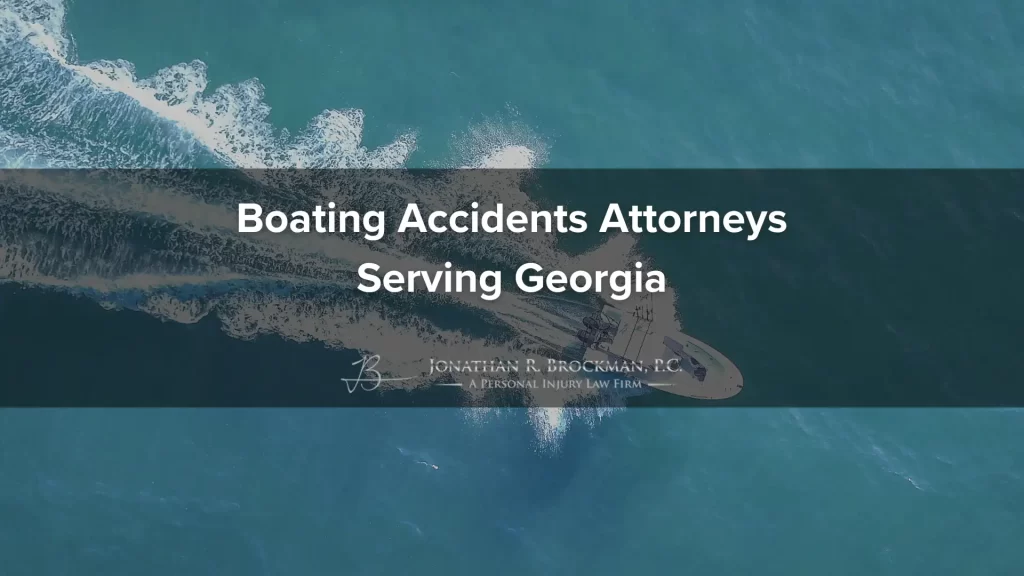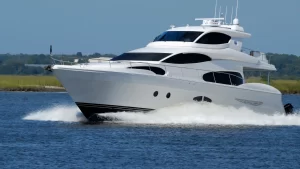
Boating accidents are increasing because many more people are utilizing our waterways. Boating is a great way to spend the day, but can cause injury or death.
Licensure
The State of Georgia requires people born after January 1, 1998 to pass a boater education course approved by the Department of Natural Resources. This rule means that boaters born before January 1, 1998 are not required to have any training to legally operate high powered motorized watercraft and sailboats. This age requirement means that in 2020 a 22 year-old who has never operated a boating vessel before, can take his/her friends out on their parents’ boat or on a rented boat. That same 22 year-old could have had too much to drink because they are permitted to purchase alcohol. Add those factors in with the lack of experience and potentially, no knowledge of the rules of boating, and a nice day on the lake could take a turn for the worse very quickly.
Obviously, the lack of licensing for persons born after January 1, 1998 is different than licensing for driving an automobile where written and on-the-road testing is required before the state permits you to operate a moving motor vehicle on public roadways. The absence of consistent boater education can lead to injury and death on the water.
Rules of the Road
Boating in Georgia has “Rules of the Road” similar to motor vehicles. Some of the rules are as follows:
- 100 Foot Law – Requires boat operators to slow or idle when they are within 100 feet of docks, piers, bridges, shorelines or people in the water. This means that it is illegal to jump the wake of another boat within 100 feet.
- Passing – Boat operators should pass on the right side when meeting another vessel unless they are far enough apart that they are not meeting head on or close to head on.
- Crossing Situation – The boat on the right should hold its course and the boat on the left should slow down and cross behind the other boat
- Powerboats vs. Sailboats – Powerboats always yield to sailboats
Legal Requirements
The legal requirements for proving a negligence claim are the same for boats as with motor vehicles. You are required to prove that your injuries resulted from someone else’s negligence in order to recover.
Common Causes for Boating Collision
 The most common type of boat collision occurs when two boats collide. According to the Recreational Boating Statistics 2018 published by the U.S. Department of Homeland Security and the United States Coast Guard, other contributing factors for boating injuries are as follows:
The most common type of boat collision occurs when two boats collide. According to the Recreational Boating Statistics 2018 published by the U.S. Department of Homeland Security and the United States Coast Guard, other contributing factors for boating injuries are as follows:
- Operator inattention
- Improper lookout
- Operator inexperience
- Excessive speed
- Alcohol use
- Navigation rules violation
- Damages
- The damages that you may recover are the same as in a motor vehicle collision: medical expenses, lost wages, personal injury, wrongful death.
Insurance
There is no mandatory legal requirement that a boat owner maintain liability insurance, unlike the requirements that most states have for operating a motor vehicle on public roadways.
Motor vehicle insurance does not cover injuries from a boating collision.
Homeowner’s insurance often does not provide insurance for injuries sustained while boating.
In our experience, motorboats and sailboats usually have liability insurance. We look to a person’s assets in the event the boat causes injury and does not have liability insurance.
Contact a Georgia Boat Accident Attorney
If you’ve been hurt in a boating accident in Georgia, you may have mounting medical expenses. The Georgia boat accident injury attorneys with Jonathan R. Brockman, P.C. are prepared to help you. Contact us at 770-205-8887 for a free consultation.
